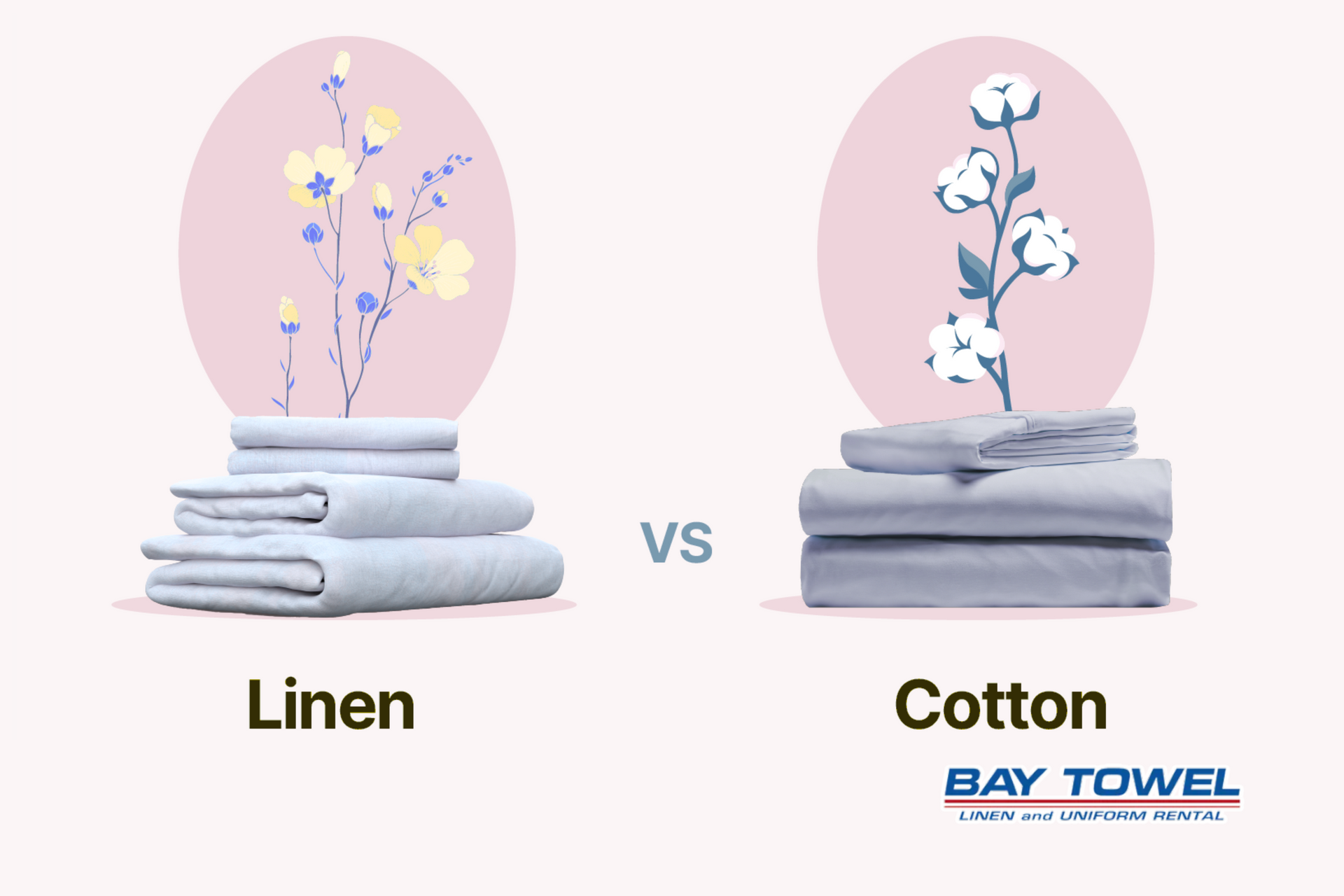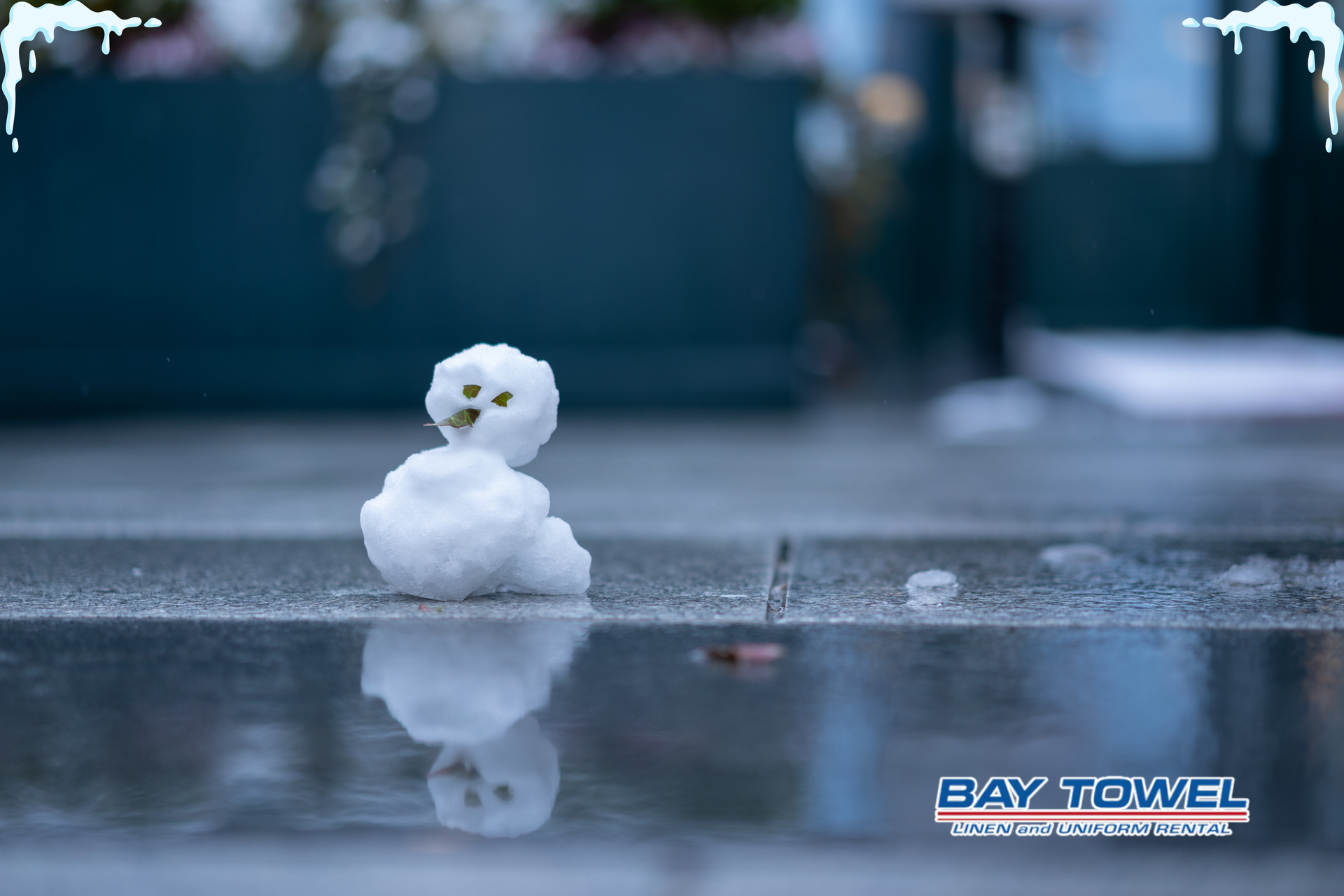Cotton vs. Linen: What’s the Difference and Why Linen Wins for Bay Towel

When it comes to textile choices in the commercial laundry industry, two natural fabrics often stand out: cotton and linen. Both have long histories in hospitality, healthcare, and foodservice settings, but when it comes to performance, durability, and sustainability, there are important distinctions between the two. At Bay Towel, we’ve seen these differences firsthand, and we strongly believe that linen is the superior choice for our customers.
Understanding the Basics: Cotton vs. Linen
Cotton:
Cotton is made from the soft fibers of the cotton plant. It’s widely used in clothing, bed linens, towels, and more. Known for its softness and affordability, cotton has been a go-to textile for generations.
Linen:
Linen is made from the flax plant and is considered one of the oldest textiles in human history. It has a crisp, textured feel and a signature natural look. Linen tends to be more breathable and durable than cotton, with a distinct sheen and weight.
Key Differences Between Cotton and Linen
Feature Cotton Linen
_________________________________________________________________________________________________________________________________________
Durability Soft but less durable over time Stronger, especially when wet
Moisture Wicking Absorbs moisture slowly Absorbs and dries quickly
Texture Smooth, soft feel Textured, crisp, with natural luster
Environmental Impact Requires more water and chemicals Flax requires fewer resources
Longevity Wears out faster with frequent washing Grows softer and stronger with use
Why Linen Wins: The Bay Towel Perspective
At Bay Towel, our mission is to provide our customers with textiles that perform under pressure, wash after wash. That’s why we believe linen offers significant advantages over cotton in a commercial setting:
✅ Superior Durability
Linen fibers are naturally stronger and more resilient than cotton, especially when wet — an essential factor in our high-temperature, high-volume laundering processes. Linens maintain their structure and performance even after countless washes, making them a cost-effective choice for restaurants, hotels, and healthcare facilities.
✅ Faster Drying
Linen is exceptionally breathable and moisture-wicking. It dries faster than cotton, which not only supports hygiene in service environments but also reduces energy consumption during laundering. That’s a win for both your operation and the planet.
✅ Sustainable and Eco-Friendly
Linen production uses fewer pesticides, less water, and less energy than cotton. At Bay Towel, we prioritize sustainable practices, and choosing linen aligns perfectly with our commitment to reducing environmental impact.
✅ Professional Appearance
Linen’s natural luster and texture offer an elevated, clean look. Whether it’s crisp napkins at a fine-dining restaurant or elegant sheets in a high-end hotel, linen delivers a premium feel that guests notice.
The Bottom Line
While cotton still has its place in some textile applications, linen simply outperforms it when it comes to durability, sustainability, and long-term value — especially in commercial environments. At Bay Towel, we’ve tailored our services and inventory to offer high-quality linen products that keep your business looking sharp, operating efficiently, and staying green.
Ready to elevate your linen program? Let Bay Towel help you make the switch.


